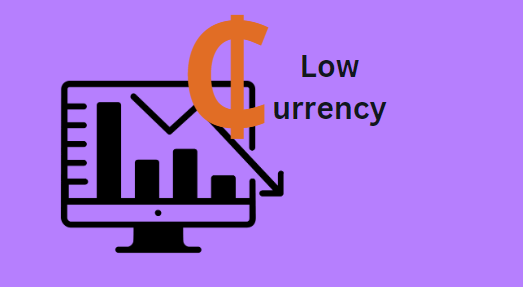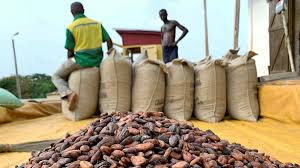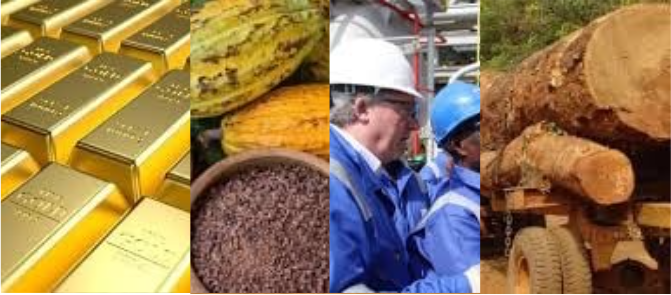
Bank of Ghana Exchange Rate
The exchange rate between the US dollar (USD) and the Ghanaian cedi (GHS) is pivotal in Ghana’s economic landscape. This rate influences everything from international trade and foreign investments to everyday transactions and consumer purchasing power. In 2024, the Bank of Ghana Exchange Rate regulates the dollar-to-cedi conversion rate, which fluctuates in response to various economic factors. This comprehensive overview will delve into the current exchange rates, specifically how much $1 and $100 are worth in Ghanaian cedis today, and the implications of these figures.
Current Bank of Ghana Exchange Rate:
How Much is $1 in Ghanaian Cedis?
The current currency rate, set by the Bank of Ghana, is around 15.70 GHS for every $1. This rate may differ significantly depending on the state of the market, shifts in the economy, and the particular bank that facilitates the exchange. The Bank of Ghana Exchange Rate makes sure that both companies and consumers have access to reliable financial information by routinely updating its rates to reflect changes in the foreign currency market.
How Much is $100 in Ghanaian Cedis Today?
To convert $100 into Ghanaian cedis, one would use the current exchange rate of 15.70 GHS per USD. The calculation is straightforward:
100USD×15.70GHS/USD=1570GHS100 \, \text{USD} \times 15.70 \, \text{GHS/USD} = 1570 \, \text{GHS}100USD×15.70GHS/USD=1570GHS
Thus, $100 is currently equivalent to approximately 1570 GHS. This conversion is essential for anyone looking to engage in business or travel in Ghana, as it directly affects one’s purchasing power within the country.
What is the dollar rate at Ghana Banks today?
It’s important to note that different banks may offer varying rates due to their individual policies and operational costs. While the official rate from the Bank of Ghana provides a general guideline, most commercial banks in Ghana closely align their rates with it. As a rule of thumb, you can expect an approximate rate of around 15.70 GHS for $1 across many financial institutions. However, it’s always wise to check with specific banks to confirm their exact rates.
How Much is One Dollar in GCB?
GCB Bank Limited, one of Ghana’s prominent banks, offers foreign currency exchange services at market rates. According to the latest data from GCB Bank, the rate for exchanging $1 remains consistent at about 15.70 GHS. This rate aligns with those offered by other banks, ensuring that customers receive a competitive rate for their currency exchanges.
How Much is 1 Cedi to 1 Dollar?
Understanding the inverse relationship between the cedi and the dollar is equally important. Given that $1 equals approximately 15.70 GHS, we can calculate how much 1 cedi is worth in dollars:
1GHS≈115.70USD≈0.0637USD1 \, \text{GHS} \approx \frac{1}{15.70} \, \text{USD} \approx 0.0637 \, \text{USD}1GHS≈15.701USD≈0.0637USD
Therefore, 1 cedi is approximately equal to $0.0637 at today’s rates. This conversion is vital for consumers and businesses alike, as it helps assess the value of cedis in terms of international currency.
How Much is a Dollar in GTBank Today?
GTBank (Guaranty Trust Bank) operates similarly to other commercial banks in Ghana regarding currency conversion rates. Currently, GTBank offers an exchange rate where $1 equals about 15.70 GHS, consistent with the rates provided by major banks across the nation. This consistency helps establish trust among customers who rely on these banks for their foreign exchange needs.
Implications of Exchange Rate Fluctuations
It is important for firms that depend on imports and exports as well as for individuals to understand these currency rates when conducting international transactions. Changes in the exchange rate may have a big effect on Ghanaians’ purchasing power, impacting everything from the price of imported goods to the capacity of local companies to compete financially on a worldwide scale.
Why Exchange Rates Matter
- Trade and Investment: A stable exchange rate fosters an environment conducive to trade and investment. Businesses can make informed decisions about importing and exporting goods, knowing that the costs associated with currency conversion will remain predictable.
- Inflation Control: Exchange rates also play a role in controlling inflation. If the cedi depreciates against the dollar, imported goods become more expensive, potentially driving up prices domestically.
- Economic Stability: A reliable exchange rate can contribute to overall economic stability, encouraging both local and foreign investments. Investors tend to favor markets where they can anticipate the value of their returns.
- Consumer Confidence: For everyday consumers, understanding exchange rates can help in making informed purchasing decisions, particularly when considering travel or shopping for imported products.
Summary
The current Bank of Ghana Exchange Rate of approximately 15.70 GHS for $1 provides crucial insights into the state of Ghana’s economy. With $100 equating to about 1570 GHS, these figures are vital for anyone looking to engage with the Ghanaian market. Additionally, the consistency of rates across various banks, including GCB and GTBank, helps create a predictable financial environment. Understanding these rates not only aids individuals in international transactions but also sheds light on broader economic trends that affect purchasing power within Ghana.







